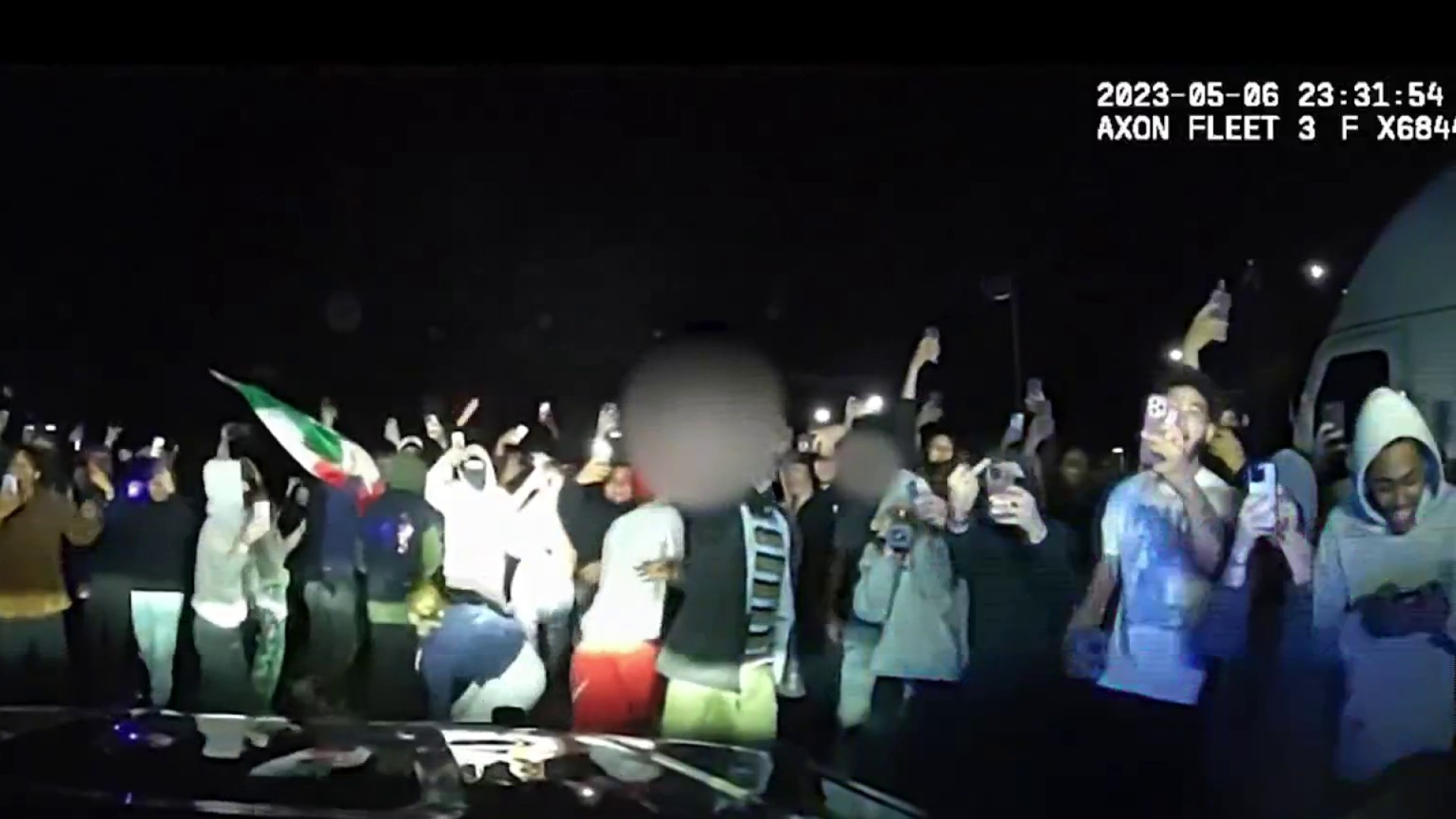It was a history-making year for state lawmakers here in Connecticut.
A bipartisan budget passed overwhelmingly this session and signed by the governor, delivering the largest income tax cut in state history. But not everyone was happy with all of the final decisions made.
NBC Connecticut's Mike Hydeck spoke with Rep. Vincent Candelora (R-North Branford) about the compromises being made and how it got to the finish line.
Mike Hydeck: Welcome back to Face the Facts. First of all, how did you feel about the cooperation between state Republicans and your counterparts across the aisle as you look back at this?
Get Connecticut local news, weather forecasts and entertainment stories to your inbox. Sign up for NBC Connecticut newsletters.
Vincent Candelora: I mean, I think overall, we sort of had a philosophy, let's get in this game, get it in early, have that conversation and where we could find common ground and have agreement. We saw that, you know, where we disagreed, we disagreed. But that's what resulted in such a great budget with bipartisan support.
Mike Hydeck: One of the things you said when this budget came out, 'I want to thank the governor for listening to us and inviting us to the table.' In years past, was that not the case, either with the governor or previous administrations?
Vincent Candelora: Yeah, it hasn't been done. You know, under Governor [Jodi] Rell while I was serving, we certainly were there at that table with her helping craft a budget. Governor Malloy, you know, not only did he not really work with Republicans on a budget, but Democrats actually kicked him out of the room and brought Republicans in. So it's been an interesting evolution over the last decade watching the budget process. Two years ago, Republicans were not invited in. And this time, it was different. I think the governor realized he was embracing a lot of Republican policies. The only way he was going to get that over the finish line was by bringing Republicans to the table, and I think he was smart in doing that.
Face the Facts
Face the Facts with NBC Connecticut goes beyond the headlines, asking newsmakers the tough questions, giving an in-depth analysis of the big stories.
Mike Hydeck: So you actually felt heard as well. So after years of polarization, both on the national level and really here, maybe you consider under Malloy's administration, is there a swing towards compromise a little bit more do you think or shift toward the middle?
Vincent Candelora: Yeah, I mean, I think it's a reflection of the leadership that's in the House, you know, with the Majority Leader Rojas and the Speaker Ritter, in our chambers. We worked together on that bipartisan budget in 2017. I think the Speaker realized the value of having those conversations. There's a trust there. And again, so you know, let's have the conversation. We all represent the same number of people in the State of Connecticut. And just because you have an R or D, doesn't mean your voice shouldn't be considered. And I think this speaker has had that philosophy.
Mike Hydeck: And I've actually seen him at news conferences with other Republicans, Senator Fazio recently, too, on trying to work on issues. Hopefully, that'll continue moving forward. With the largest income tax cut in state history, this is something everybody was touting, saying this is going to be a great thing. Is it sustainable, though? The governor says, look, the way the numbers we picked, we didn't go too far. It is sustainable, he thinks. Do you feel the same?
Vincent Candelora: Absolutely. It is one of the important things of this whole budget, which was done in 2017 with Republicans and Democrats, is creating this volatility cap. What it does is insulates us from the highs and lows of revenue. So this year alone, we saw a $500 million reduction in revenue. That reduction never turned into a deficit because of that volatility cap. So we believe tax cuts are sustainable, because we have that cushion built in. We no longer budget the highs of the stock market. We're budgeting an average. So there's money leftover which goes into the pension. With that in place, it allows you to be able to start reducing taxes. That was the whole point of why we wanted that volatility cap in place, was to ultimately right size government and reduce taxes in Connecticut.
Mike Hydeck: So not to get too wonky here, but the the rainy day funds used to be at 15% of operating capacity. It's now 18%, right?
Vincent Candelora: It is.
Mike Hydeck: So what's that, where does that 3% go?
Vincent Candelora: Basically it's a bigger savings account. So we increased our savings account to 18%. But the big takeaway is that we no longer budget project revenue year to year, we take a five-year average. So what we say is, we're not going to budget a high year of revenue, we're going to take an average and that lowers our spending, and it right sizes government and it protects Connecticut from those dangers of deficit spending.
Mike Hydeck: So one of the things that was continually talked about throughout the budget process, and still is, is the lack of teachers and the lack of nurses in our state and the ability to recruit them and retain them. How do you feel about that moving forward? The teachers are still not quite satisfied with what they got out of the bargaining deal they've had.
Vincent Candelora: I think the teachers, all of that's locally, collectively bargained, but we increased education funding at a record level, you know, over $180 million is put into local education. So I think the money is there. And it is a matter of time and evolution. We've got to recover from COVID. There's only so much you could do to re-attract a workforce. And so that process is going to be a lot slower. And I think we're seeing a lot of behavioral issues with kids. And so the demands on bringing more support staff into the schools are only going to be greater. So it's not just the teacher shortage. We have to look at paraprofessionals, school psychologists, other areas that need to come into these classrooms, where 20 years ago, we didn't need that kind of service.
Mike Hydeck: That could also fall under the healthcare umbrella as well because we need mental health counseling and you need maybe more school nurses to help with the larger situation. So when you think moving forward, you know, it's two-year budget, but there's always adjustments made in the second year of the two years. What do you think should be a priority in the next year or so?
Vincent Candelora: I think just what we talked about, you know, what we're seeing with children and how we have been, you know, the state's been light on crime with a lot of their proposals. Children are getting into trouble at a lot younger age, we're seeing drug use on the rise. Another report just came out that now we're seeing the psilocybin, the magic mushrooms, that drug is being increased use among teens. So I think our focus really needs to continue to be, you know, mental health, drug treatment and diversion for our children, and also holding them accountable. So we've got to put more resources and money in those areas.
Mike Hydeck: And you think that'll happen where? In the staffing area, you think, hopefully moving forward? And how do you do that? I mean, when you try to make an adjustment in the second year of a two-year budget, how does that happen? Do you shift funds from one account to another?
Vincent Candelora: You can or if there's surplus money, you know, additional money to spend, you could actually spend money there as well. Because we're already hearing from the mental health industry that there isn't enough support services there for children. So I think it's going to be a big focus going forward.



